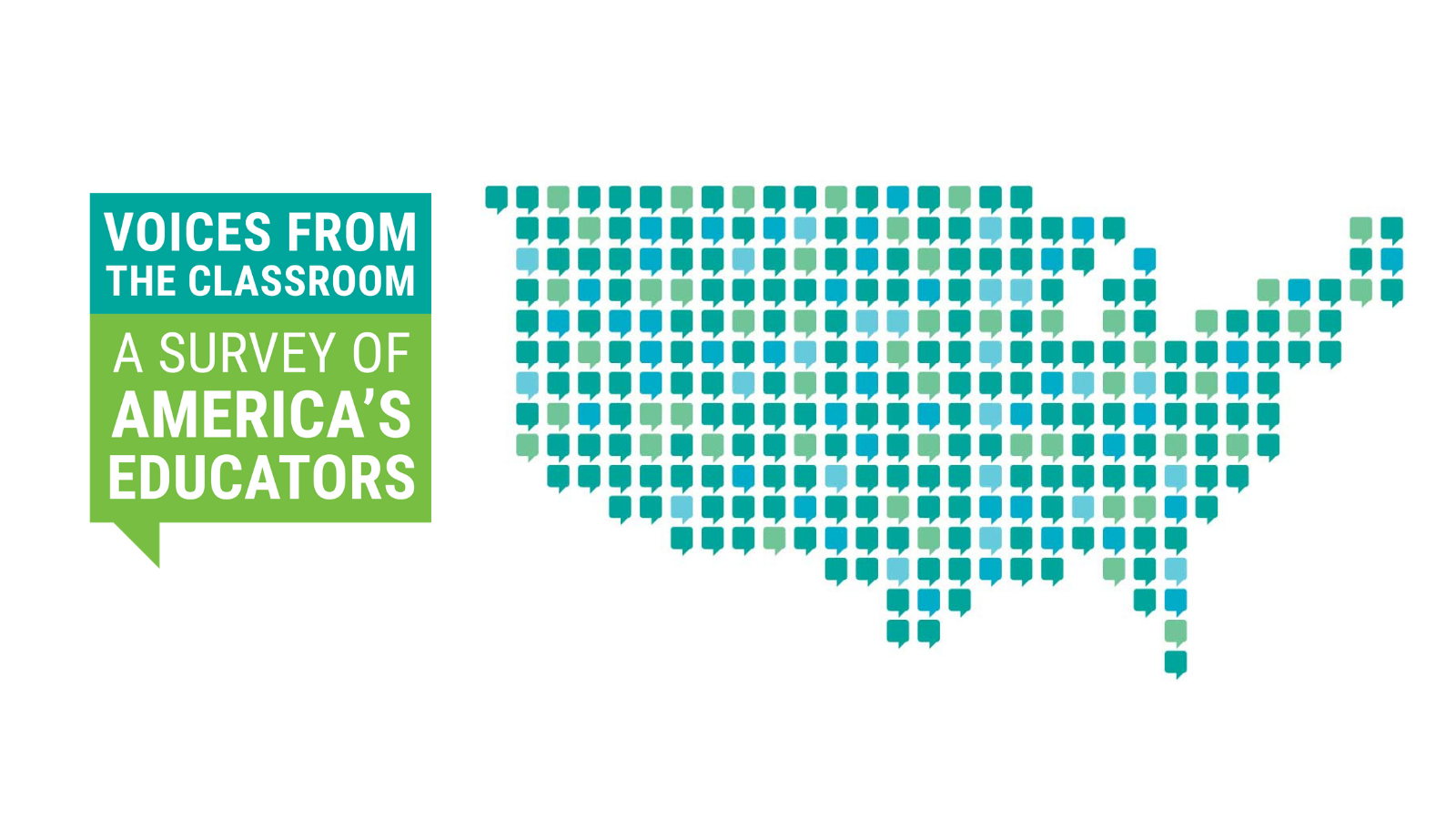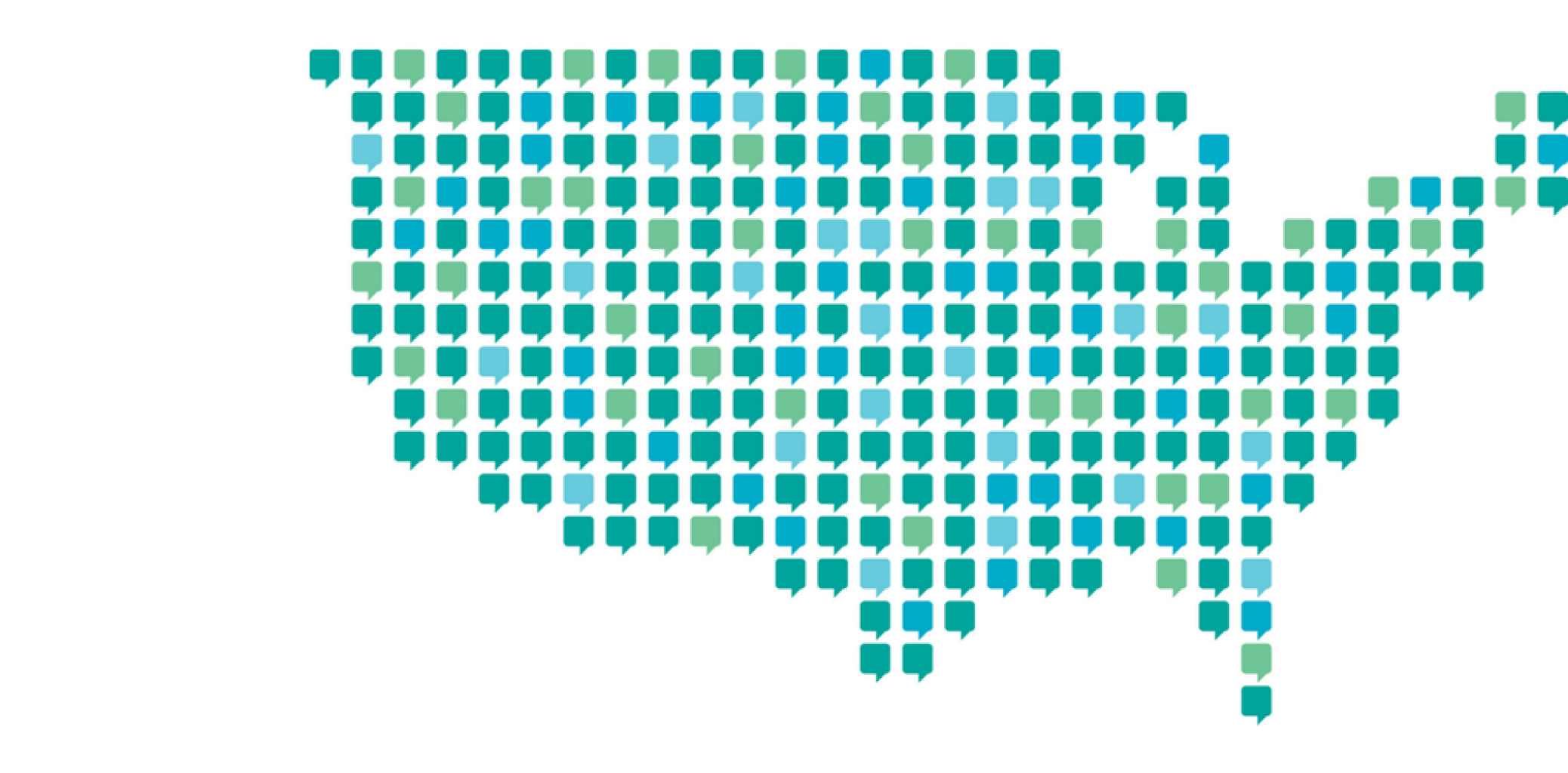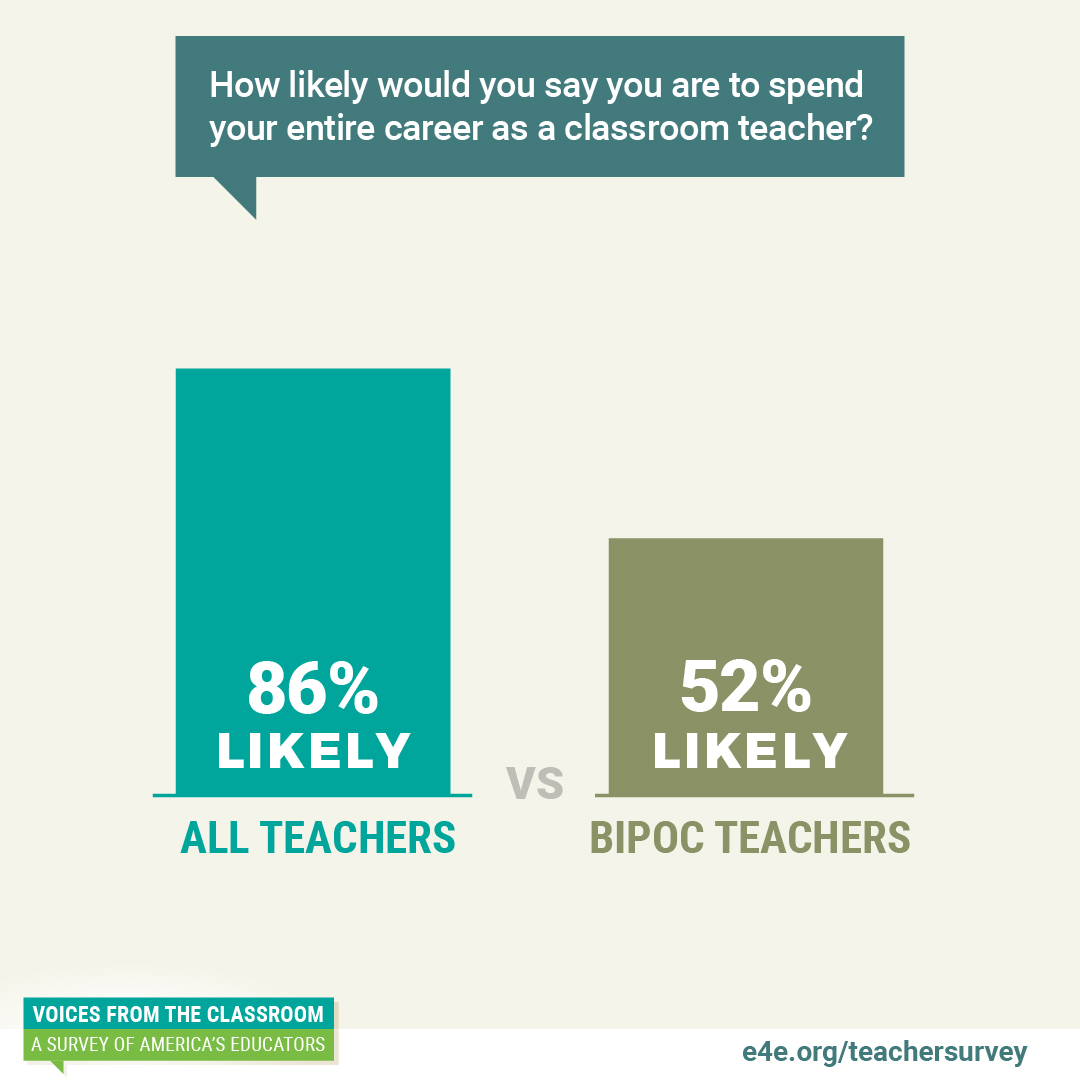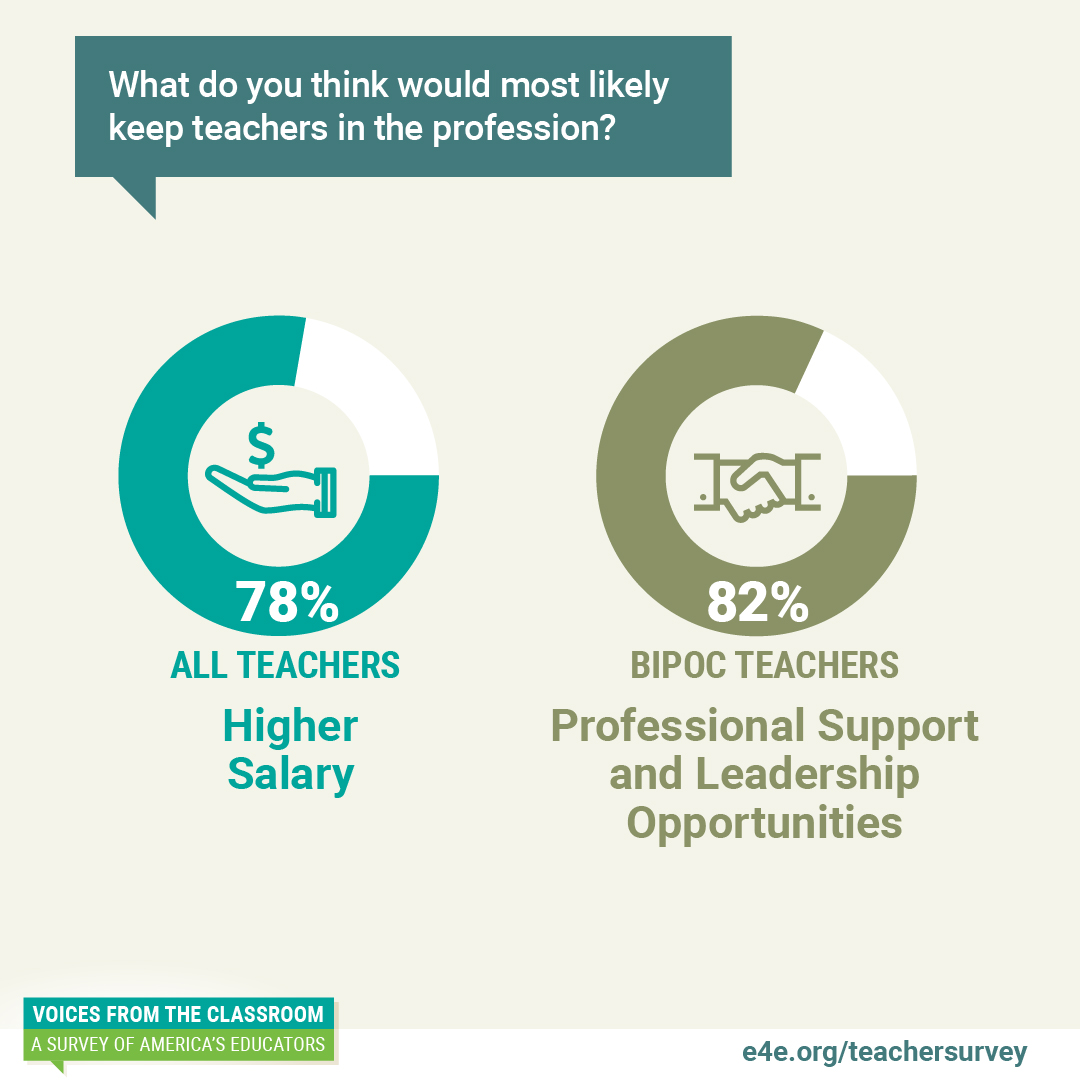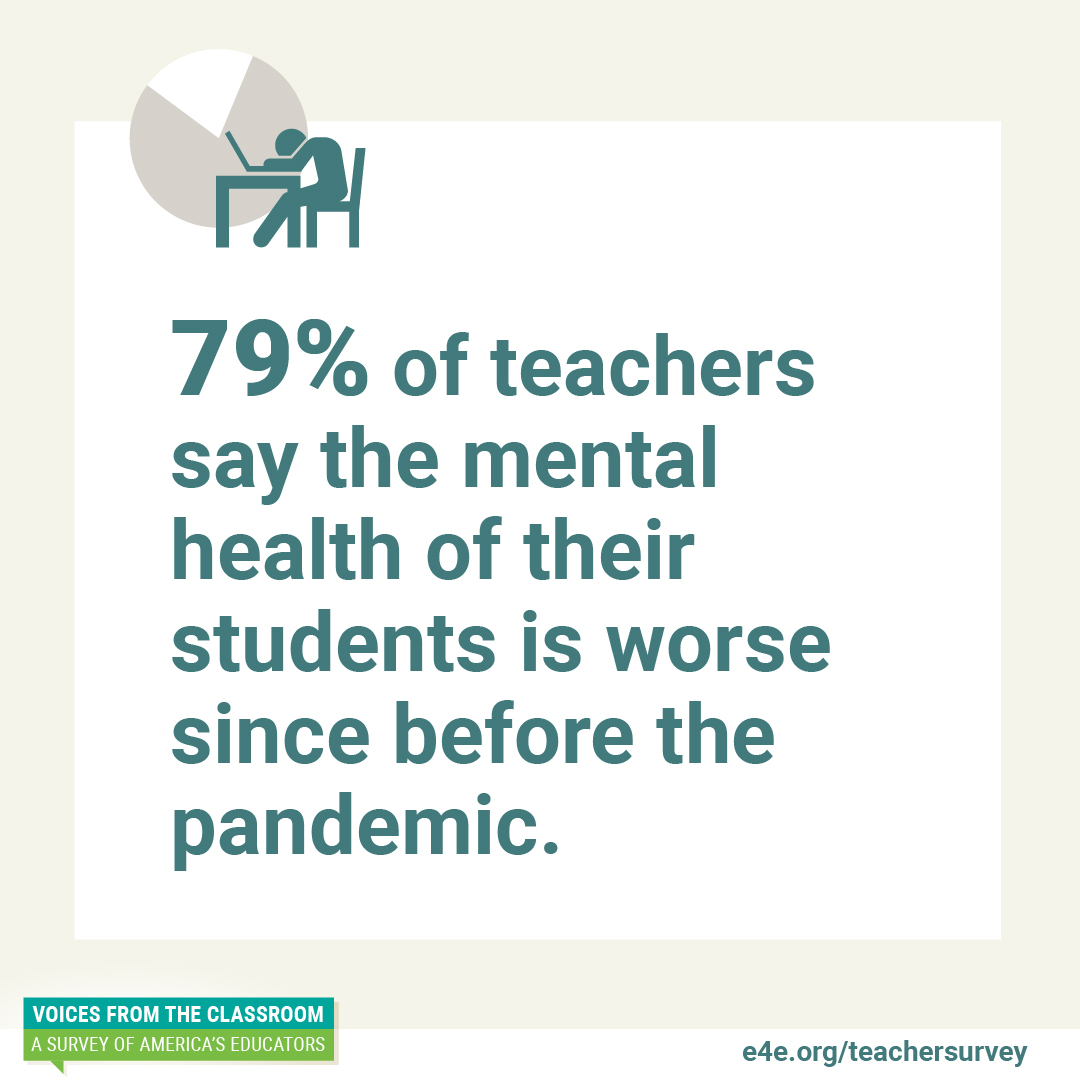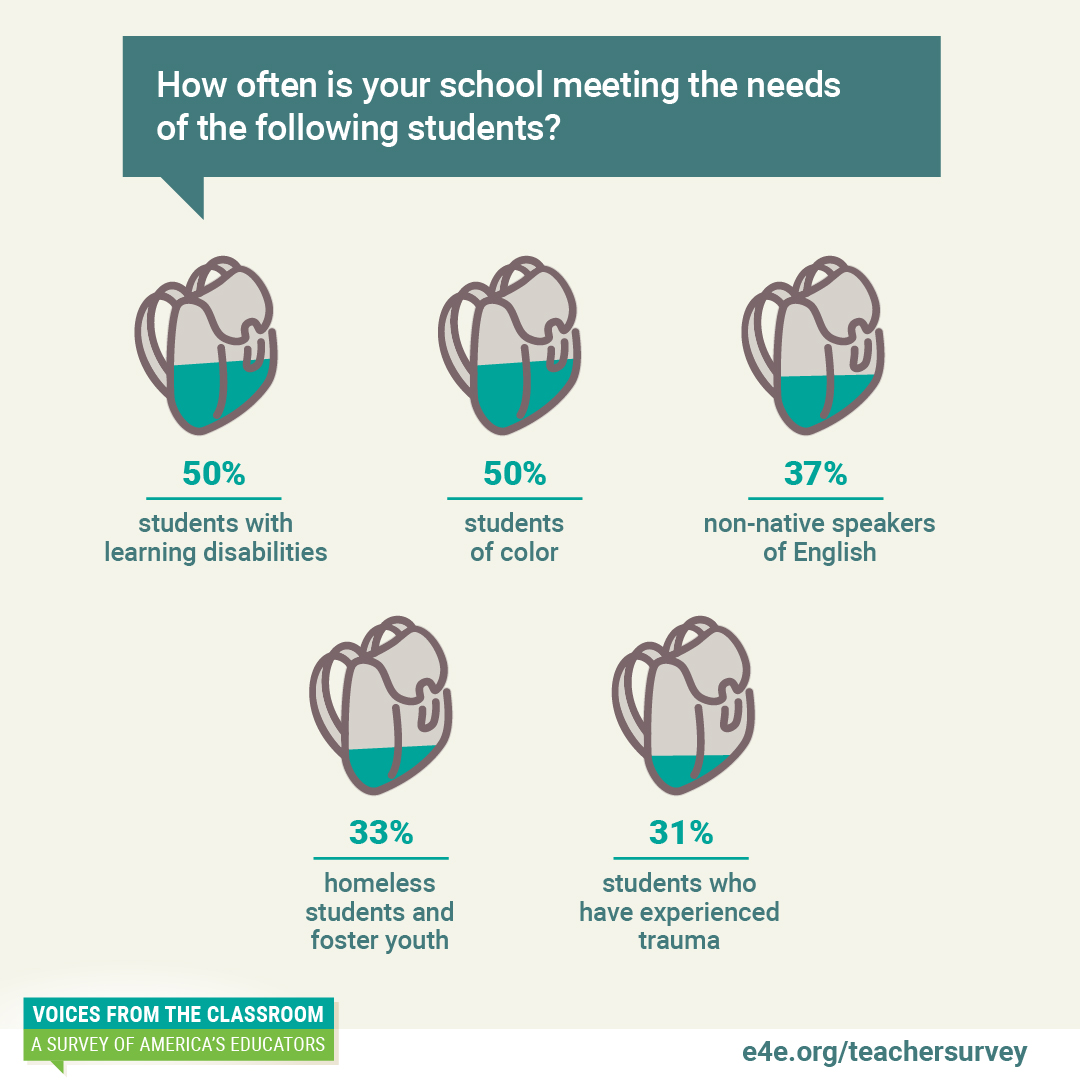Since March 2020, public schooling in the United States has undergone massive shocks to the system. Two years ago, school buildings closed indefinitely with very little advance notice as a result of COVID-19. Since then, significant staffing shortages have plagued districts across the country and classrooms have become politicized, threatening student learning amidst an already massively challenging environment.
Voices from the Classroom 2022 uncovers the perspectives of educators during this unprecedented moment. To E4E’s knowledge, it is the only survey that has compared a national sample of BIPOC educators to all educators nationally, giving us invaluable insight into what educators of color think and feel about the critical issues facing our students, schools, and the profession and how this is different than a general sample of educators across the country.
We hope that this report grounds you in the perspectives of teachers, particularly BIPOC teachers, and helps to guide your own work to create the schools our students and teachers deserve.
The Voices from the Classroom 2022 survey questionnaire was developed by 15 Educators for Excellence teacher members from across the United States. The instrument was written and administered by Gotham Research Group, an independent research firm, and conducted online from January 11 through February 4, 2022, among a nationally representative sample of 1,000 full-time public school teachers. Note that all survey results are presented as percentages and, due to rounding, may not always add up to 100 percent.
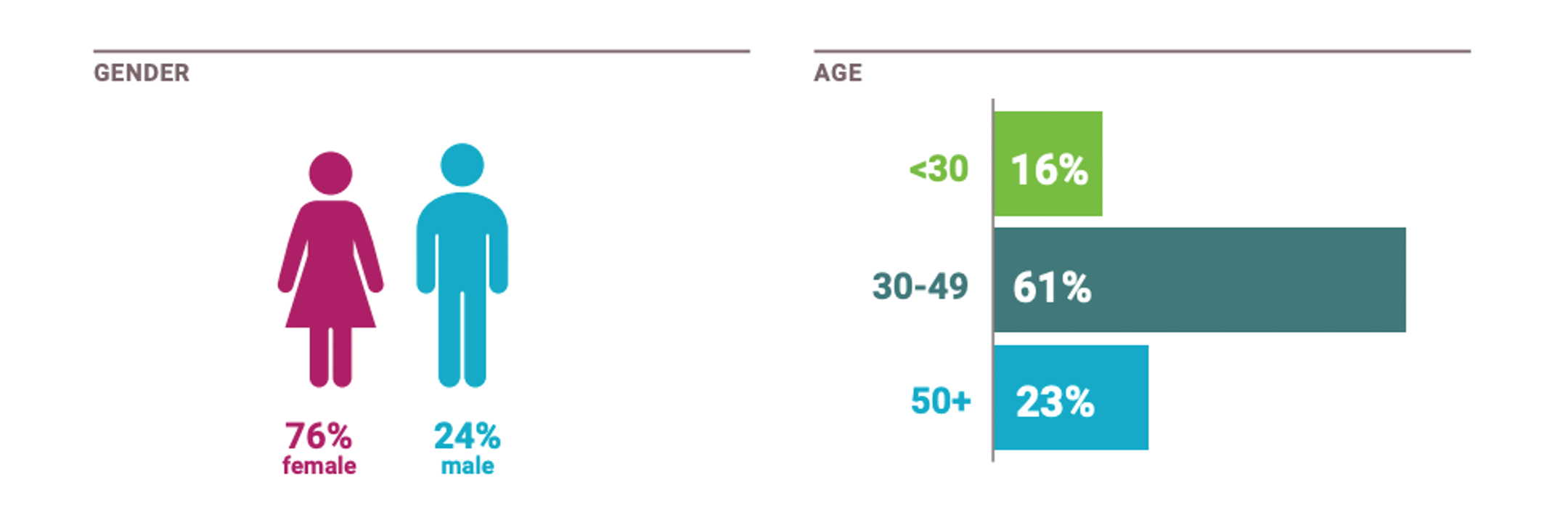
Major Trends and Findings
-
Counter to the national narrative, most teachers remain committed to staying in the classroom long term. Alarmingly though, teachers of color are far less likely to say teaching is a sustainable career.
-
There are significant staffing shortages across all school-based positions and a constant need for teachers to give up their planning periods to cover classes.
-
Resources matter to recruit and retain teachers; BIPOC teachers differ on how to spend those resources.
-
Teachers continue to report having little say in selecting curriculum and find curriculum doesn’t meet the academic or social-emotional needs of their students.
-
Teachers do not believe schools are meeting the academic and social-emotional needs of students.
-
Teachers value union support in many ways, but do not see their unions supporting their professional and career development.
-
Teachers have not been consulted on stimulus fund plans. Teachers do have strong opinions on how the money should be used.
-
Teachers, particularly BIPOC teachers, believe assessments are useful and crucial to understanding students’ performance.
-
Teachers, with some exceptions, believe in teaching issues of race, racism, and the history of underrepresented populations.
-
Teachers are divided on how and when parents should be engaged in decisions on curriculum and on whether there should be legal limits to what can be taught in schools.
Deep Dive Reports
Take a closer look at the Voices from the Classroom 2022 data by theme, and find advocacy opportunities for creating change for teachers and students.
| LGBTQ+ Students |
In this brief, we explore whether teachers believe their school is meeting the needs of LGBTQ+ students, and to what extent they believe curricular materials should cover the histories and experiences of those of similar identities. We then outline legislative opportunity to support the creation of inclusive environments for LGBTQ+ students. |
|
BIPOC Teachers |
In this brief, we, along with The Education Trust, explore BIPOC teachers’ perspectives on how to recruit and retain teachers of color, and connects their perspectives to district- and state-level policy solutions, including modifying seniority-based lay-off policies to protect teachers of color and investing in the leadership pathways that teachers of color report seeking. |
|
Social-Emotional Learning |
In this brief, we, along with CASEL, explore teachers’ perspectives on the state of their students’ mental health post-pandemic and what resources are needed to support them inside and outside the classroom. Based on this data, we highlight resources from CASEL teachers and school leaders can use to support their students socially and emotionally, and call for increased federal funding for mental health support staff in schools. |
Share the Survey Results
Use the graphics below to share key findings from the survey with your social media networks.
2021 Survey Results
Click here to check out the 2021 Voices from the Classroom survey results.
